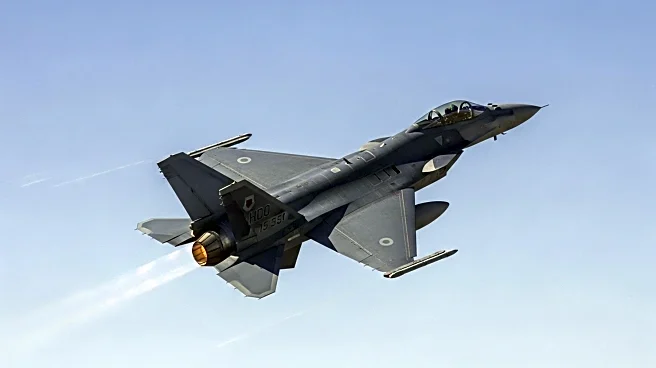What's Happening?
Russian President Vladimir Putin's recent provocations toward NATO countries have raised concerns about regional security. Russia's MiG-31 fighter jets violated Estonian airspace, marking the fourth such incident this year. The jets flew without filed flight plans and with transponders turned off, refusing to respond to air traffic control. The situation has prompted calls for NATO to take decisive action, including shooting down any further Russian aircraft that enter their airspace. This approach is seen as necessary to deter Russia's aggressive tactics and reinforce NATO's mutual defense guarantees.
Why It's Important?
The repeated violations of NATO airspace by Russian military aircraft highlight the growing tensions between Russia and Western countries. These provocations challenge NATO's resolve and mutual defense commitments, potentially destabilizing the region. A strong response from NATO could deter further Russian aggression and reinforce the alliance's security posture. The situation underscores the importance of maintaining international norms and deterring actions that threaten peace and stability.
What's Next?
NATO leaders may consider implementing stricter measures to address Russian airspace violations, including potential military responses. The international community will be closely monitoring the situation, particularly any diplomatic or military actions taken by NATO to reinforce its defense commitments. The outcome of these efforts could influence future interactions between Russia and NATO countries.








